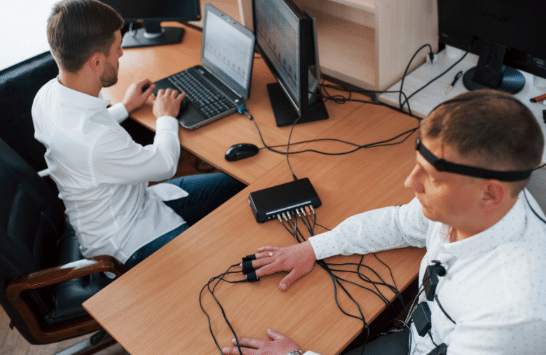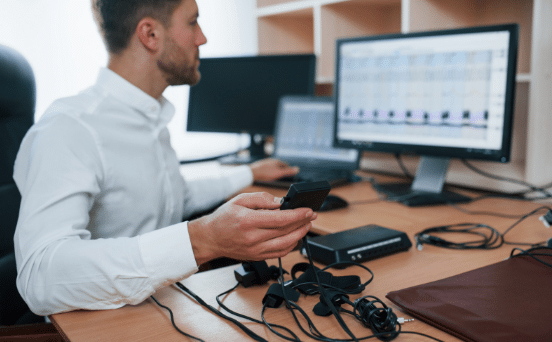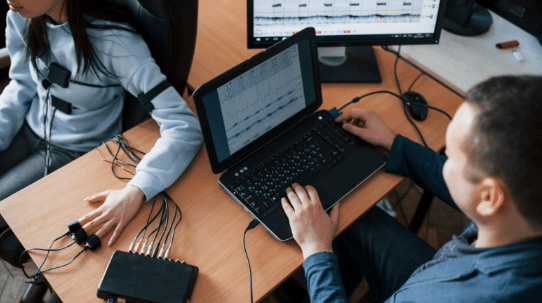The United States is one of the world’s top resettlement destinations.
According to statistics, the US admitted some 767,950 asylum seekers between 1990 and 2021. 17,692 of this number came into the country in 2021 alone.
To gain entry into the US, asylum seekers typically undergo rigorous vetting. Part of the prequalification process may require prospective asylees to undergo procedural polygraph exams.
Lie detector tests have proven to be a remarkable background check tool. When used alongside other pieces of evidence, the technique can enable the Department of Homeland Security (DHS) to validate an individual’s statements.
However, many polygraph critics cite the potential for human rights violations. There are widespread concerns that lie detector tests can infringe upon an asylee’s right to privacy and right against self-incrimination.
Fortunately, it’s possible to conduct credible polygraph tests while upholding an examiner’s fundamental human rights.
Safeguarding Asylee’s Human Rights
The United States has implemented elaborate policy measures to protect asylum seekers.
First, the US Citizenship and Immigration Services (USCIS) officials must handle asylum data responsibly.
Note that most asylees are fleeing political persecution in their home countries. Some have already endured despicable cruelty and are still high on their prosecutors’ radars.
So, the last thing they want is to expose their current locations.
USCIS officials can request an asylee to submit to a polygraph test. However, the reports must be confidentially handled to avoid dangerous data leaks.
Besides, the United States protects asylum seekers from harassment and discrimination. Asylees must feel safe in the country they’ve chosen as their permanent resettlement destination.
Again, this ties back to proper data management. Immigration officials must handle asylee data discretely to avoid leaking their identities, which could expose them to racism or xenophobic violence.
Role of Polygraphs in Asylum Applications
Subjecting asylum seekers to procedural lie detector tests can provide useful data on their background.
For all you know, the individual could be an undercover agent working for a foreign country. Or, worse yet, a full-on terrorist.
Polygraphs can also help impeach or corroborate an asylee’s claims.
Even with no ties to terrorist groups or foreign intelligence agencies, it’s not uncommon for asylum seekers to misrepresent facts. Many will tell outright lies in a bid to fast-track their applications.
Administering a lie detector test can help validate the veracity of disclosures, helping to prioritize worthy cases.

Navigating Potential Human Rights Violations
Despite the polygraph’s efficiency in prequalifying asylum applications, many cite the risks of human rights violations. Those include;
1. Consent
Industry standards require polygraph examiners to obtain an examinee’s willful, informed consent.
Not only should an examinee be made aware of the intention to have them undergo a lie detector test. They should also understand the full implications of failing the evaluation before giving their consent in writing.
Asylum seekers are a vulnerable group. Many asylees will readily consent to being polygraphed, not because they willfully agree but for fear of the repercussions.
Why get deported back to your origin country and face a ruthless dictator when you could simply submit to a lie detection process?
To ensure the consent is truly voluntary, examiners must engage asylum seekers in extensive preliminary discussions.
Asylees need to know that they can still decline to be polygraphed without ceding their fundamental human rights.
But more importantly, preliminary engagements should focus on encouraging the individuals to be honest during the upcoming polygraph test.

2. Data Privacy
As mentioned, asylum seekers are vulnerable groups and must be handled delicately.
Polygraphing asylees may involve asking deep background queries. Despite being well-intentioned, the technique can result in collecting extensive sensitive information about a subject.
This may blur the lines between data protection and truth seeking. It’s only worse if the collected information winds up in careless hands.
To address data privacy concerns, examiners should strictly share polygraph reports with authorized persons.
Industry regulations require polygraph reports to contain the relevant in-test questions verbatim.
However, examiners can conveniently omit sensitive details shared during the pre-test and post-test phases. Unless, of course, such information casts aspersions on an asylee’s credibility.
3. Admissibility
Admissibility is another sticking concern for asylum polygraphs. While multiple studies have shown lie detector tests to be reliable if professionally conducted, the technique falls short of the Daubert standard.
Most jurisdictions do not allow polygraph findings in criminal cases. And even in exceptional circumstances, the reports are commonly admissible as supplementary evidence.
The surest way to conduct a legally defensible polygraph test is to hire a licensed examiner.
A professional examiner will effectively address the core human rights concerns that could make the findings inadmissible, such as coercion and data privacy violations.
Besides, immigration officials may consider scheduling detector tests in states that generally allow polygraph reports. Examples include New Mexico, California, Nevada, Texas, and Arizona.

Bottom Line
Despite fierce opposition from various quarters, the polygraph remains a reliable tool for vetting asylum seekers.
Lie detector tests can assess the veracity of an asylee’s documents and statements. The findings may prove instrumental in prequalifying asylum seekers, enabling immigration officials to prioritize applications on a merit-based basis.
To address glaring human rights concerns in immigration testing, examiners must adhere to the industry’s standards on polygraph administration. That entails obtaining an examinee’s informed consent and handling disclosures in compliance with applicable data protection laws.
Besides, polygraph exams are most effective where an asylee’s reputation has come under intense scrutiny. The test findings can provide an extra layer of proof, clearing all suspicions.






